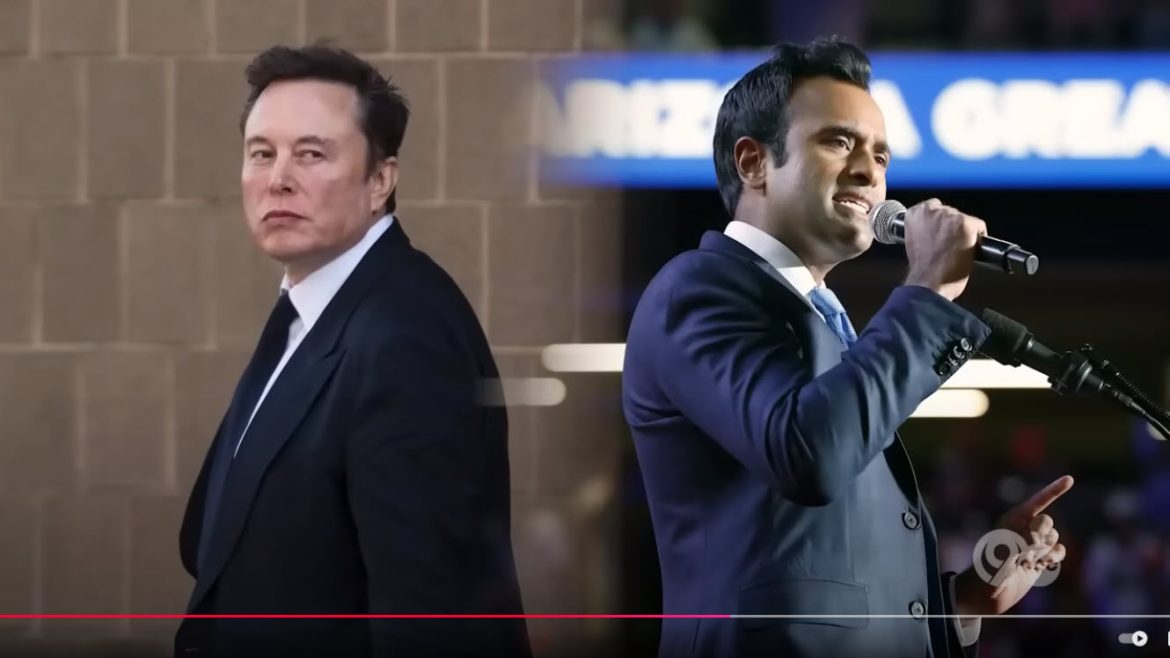Elon Musk and Vivek Ramaswamy are spearheading a bold initiative to drastically cut U.S. federal spending and regulations through their newly formed advisory body, the Department of Government Efficiency (DOGE). This initiative, backed by President-elect Donald Trump, aims to reshape the federal government’s financial landscape by targeting $500 billion in annual expenditures deemed unauthorized or misaligned with Congressional intent.
Musk, known for his ventures in technology and space exploration, and Ramaswamy, a biotech entrepreneur, have laid out a plan that involves significant reductions in federal staffing and regulatory oversight. They propose to achieve these cuts through executive actions rather than new legislation, leveraging Trump’s executive powers and a conservative Supreme Court majority.
The duo’s strategy includes identifying regulations issued without Congressional approval, which Trump could potentially nullify via executive order.
The proposed cuts focus on areas such as the Corporation for Public Broadcasting, international grants, and funding for organizations like Planned Parenthood. However, the plan has sparked controversy due to its potential impact on various sectors, including veterans’ healthcare and anti-poverty programs.
Critics argue that such sweeping changes could lead to a constitutional clash over presidential powers, particularly regarding the use of impoundment—a tactic that involves withholding funds allocated by Congress.
Musk and Ramaswamy’s approach has drawn comparisons to past efforts to streamline government spending, such as those during Ronald Reagan’s presidency. Despite historical challenges in implementing such reforms, they remain optimistic about their ability to enact change. Their initiative is supported by key Republican figures in Congress, suggesting a concerted effort to push these reforms forward.
As part of their transparency efforts, Ramaswamy has announced plans for regular updates through “Dogecasts,” aiming to keep the public informed about their progress. This initiative is seen as a once-in-a-generation opportunity to address what they describe as “waste, fraud, and abuse” within the federal government.
The outcome of this ambitious plan remains uncertain, with many experts skeptical about its feasibility given the entrenched interests and legal challenges involved. Nonetheless, Musk and Ramaswamy’s efforts mark a significant moment in U.S. political discourse regarding government efficiency and fiscal responsibility.



